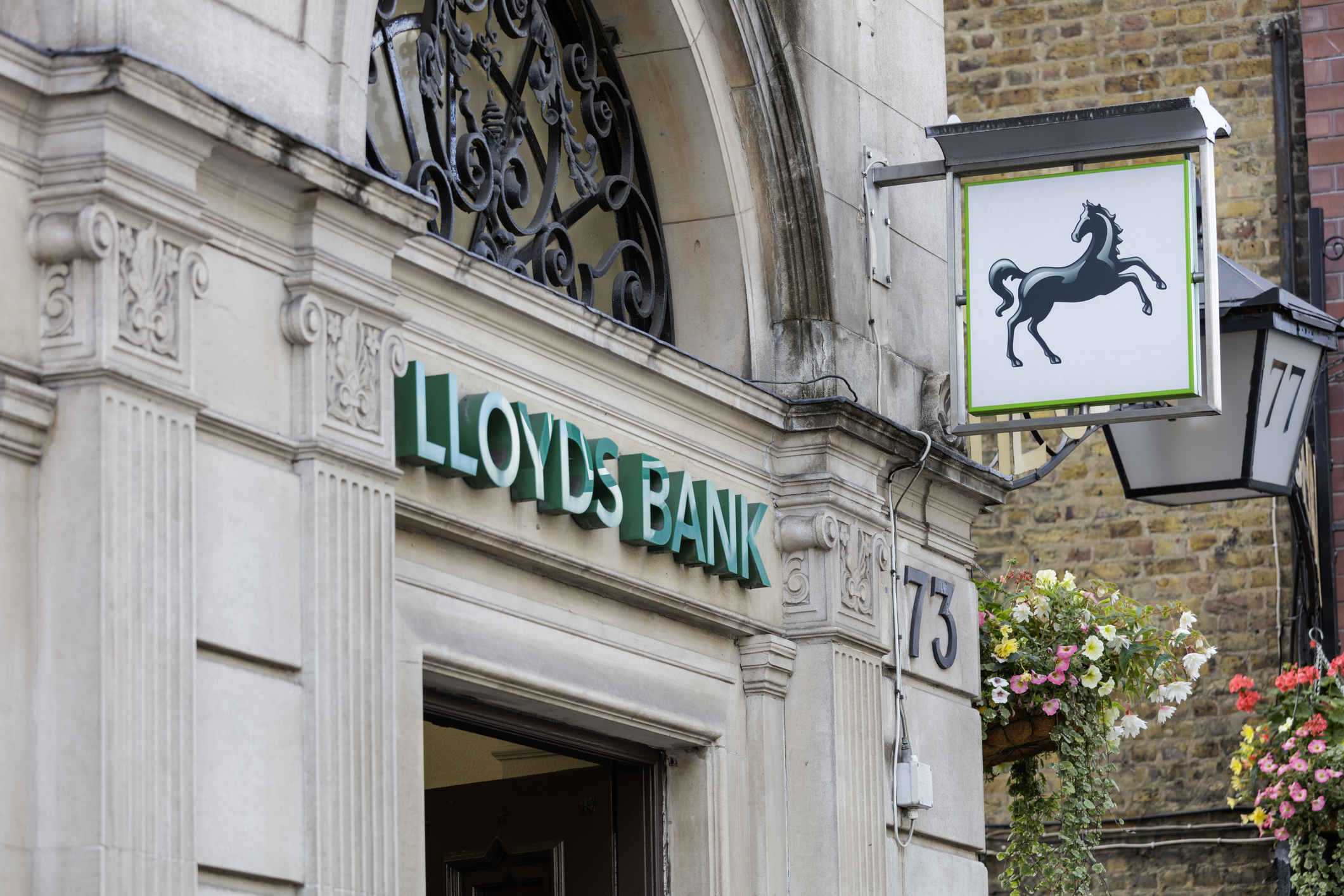The best bank switching offers – get up to £500
The best bank switching offers currently pay up to £500 in cash. Are you eligible, and how do you switch current accounts?

Daniel Hilton

Get the latest financial news, insights and expert analysis from our award-winning MoneyWeek team, to help you understand what really matters when it comes to your finances.
You are now subscribed
Your newsletter sign-up was successful
Want to add more newsletters?

Twice daily
MoneyWeek
Get the latest financial news, insights and expert analysis from our award-winning MoneyWeek team, to help you understand what really matters when it comes to your finances.

Four times a week
Look After My Bills
Sign up to our free money-saving newsletter, filled with the latest news and expert advice to help you find the best tips and deals for managing your bills. Start saving today!
If you’re not happy with your current account, a good way to move your money – and get ‘free’ cash in the process – is by seeking out the best bank switching offers.
More than one million bank account switches took place in the last year, data from the Current Account Switch Service (CASS) shows.
There were 265,083 switches between July and September 2025. The biggest winner was Nationwide, with the highest net gains of 41,450. Digital bank Monzo took second place with 9,934 switches, while digital bank NatWest placed third with 8,731. We delve into the most and least popular banks among customers in a separate piece.
MoneyWeek
Subscribe to MoneyWeek today and get your first six magazine issues absolutely FREE

Sign up to Money Morning
Don't miss the latest investment and personal finances news, market analysis, plus money-saving tips with our free twice-daily newsletter
Don't miss the latest investment and personal finances news, market analysis, plus money-saving tips with our free twice-daily newsletter
Kalpana Fitzpatrick, editor of MoneyWeek.com, says: “Bank switching deals are a great incentive for anyone looking to move banks. But, before you switch, make sure the bank you are moving to offers what you need – don’t switch just because there is a cash bonus on offer.”
There are currently seven bank switching deals, offering up to £500 in cash. A flurry of deals entered the market this year, but they could be withdrawn at any time, so you’ll need to act quickly to take advantage.
We round up the deals available now and explain how to earn the bonus after making the switch.
The best bank switching offers
Lloyds – get £200, or up to £500
Club Lloyds – get £200
Lloyds has launched a new bank switching deal that offers customers £200 when they switch to any of their ‘Club Lloyds’ current accounts.
To qualify for the £200 offer, you will need to complete the following steps before 30 April:
- Complete a full switch to a new Club Lloyds, Club Lloyds Platinum or Club Lloyds Silver account using CASS
- Transfer at least three active direct debits from your old account
- Spend £100 on your debit card within 35 days of opening your account
If you meet the above criteria, you can expect to receive your £200 bonus within 45 days of opening your account.
All Club Lloyds accounts have a £5 fee that must be paid monthly unless you pay at least £2,000 into the account each month. The Club Lloyds Platinum and Silver accounts have an additional £22.50 and £11.50 a month fee, respectively.
Lloyds Premier – get £500
The £500 offer is reserved for wealthier individuals who qualify for the Lloyds Premier account.
To be eligible for a Premier account, you must pay in £5,000 each month or have £100,000 of qualifying savings or investments with us.
The account comes with a £15 monthly fee that is waived if you meet the above criteria.
If you are eligible for the Lloyds Premier account, you can get a £500 bonus when you switch.
To qualify for the bonus, you must complete the following steps before 30 April:
- Use CASS to complete a full switch to Lloyds Premier
- Transfer at least three direct debits from your old account
- Spend £200 within 35 days of opening your account
- Deposit £5,000 or have £100,000 in savings or investments with Lloyds in the first calendar month of opening your account
If you complete all these steps, you will receive your switching bonus within 45 to 90 days of opening the account.
Barclays – get £400
The new switch deal by Barclays offers new customers a £400 cash bonus when they switch to its Premier current account using CASS.
To get the bonus, you must be eligible for a Barclays Premier account, which requires you to either have a pre-tax income of at least £75,000, have at least £100,000 in savings or investments with Barclays, or a mix of both.
If you are eligible for the Premier account, you must start your application by 30 April and complete the following steps within 30 days to get the £400 deal:
- Apply for a Barclays Premier Current Account in the Barclays app
- Use the app to complete a full switch, including at least two Direct Debits
- Pay in at least £4,000 to the new Premier Account within 30 days of the switch
Barclays will text you when you have met the conditions and you will receive the £400 bonus within 28 working days.
Santander – get £200
Santander’s £200 switching deal is for both new and existing customers.
To qualify, you must do the following:
- Complete a full switch using the CASS within 60 days of opening your account
- Pay £1,500 into the account either as a one-off payment or in instalments.
- Set up two direct debits in the eligible account.
Eligible accounts include Santander Everyday, Edge (£3 monthly fee), Edge Up (£5 monthly fee) and Edge Explorer (£17 monthly fee).
The bonus will be paid within 90 days of initiating the switch.
Existing customers can get the bonus by transferring £1,500 from an account held with a different provider to their new Santander account using the bank’s switch service. Plus, they will need to set up two direct debits.
You won’t qualify if you held a Santander current account on 1 January 2025 or have taken advantage of a switch offer from the bank before.
Nationwide – get £175
Nationwide is offering a £175 bonus to new customers. You can get the cash by switching a non-Nationwide current account into a new or existing FlexPlus, FlexDirect or FlexAccount.
To qualify, you must complete the following:
- Use the CASS to complete a full switch to Nationwide within 28 days.
- Pay in at least £1,000 and make at least one debit card transaction within 31 days.
- Switch over a minimum of two Direct Debits to Nationwide.
You’ll receive the bonus within ten days of meeting all the requirements.
You are not eligible for this switch deal if you have received a switch bonus from Nationwide since 2021.
By switching to Nationwide, you could potentially become eligible for the building society's £100 Fairer Share payment, a scheme which it has run for the past three years.
Nationwide hopes to make Fairer Share Payments annually, but it depends on financial performance. The eligibility criteria and the bonus amount could change in the future.
First Direct – get £175
First Direct’s switching bonus offers new customers £175 free cash to those who switch to its 1st account.
To qualify for the bonus, you will have to complete the following steps within 45 days of opening your First Direct 1st Account.
- Deposit a minimum of £1,000 (in single or multiple deposits) in your account.
- Switch at least two direct debits or standing orders into your First Direct 1st Account.
- Register and log on to digital banking.
- Use your new 1st account debit card at least 5+ times.
- Be a new customer to First Direct, who has not previously held a First Direct product, or has opened an HSBC current account on or after 1 January 2018.
Once all the steps are completed successfully, the £175 bonus will be paid to your account on the 20th of the following month.
The account gives you access to its market-leading 7% regular saver. Plus, there are no fees when spending abroad with First Direct, and the current account comes with a £250 interest-free overdraft, although this depends on your credit history.
The Co-operative Bank – get up to £175
The Co-operative Bank’s new switch offer is giving customers £100 for switching to the bank, plus £25 a month for up to three months. The offer is open to new and existing customers, provided they meet the eligibility criteria and terms and conditions.
To qualify for the £100 bonus, you must:
- Deposit a minimum of £1,000 into the new account.
- Have two active Direct Debits.
- Make ten or more card transactions.
- Register for the bank’s online and/or mobile banking service.
You will receive the cash within seven days of meeting all of the criteria.
To get the £25 per month in the first three months, customers must keep using their account by:
- Depositing £1,000 or more.
- Have two active Direct Debits, and
- Making ten or more debit card or digital wallet transactions (pending transactions won’t count).
Your three months will begin on the day after you receive the £100 switch incentive. You won’t qualify if you have benefited from a switch bonus at The Co-operative Bank since November 2022.
NatWest – get up to £150
NatWest is offering a new £150 switch offer to new and existing customers who do not hold a NatWest current or savings account as of 17 February.
To qualify for the £150 bonus, you must:
- Apply for a NatWest Select or Reward account and request a switch using CASS by 28 May 2026. The switch must be completed by 16 June.
- Pay in £1,250 within 60 days of switching. This can be done in instalments, and the money must stay in the account for at least 24 hours
- Log into NatWest’s mobile app
If you have done all the above steps, the £150 will be paid into your account automatically within 30 days.
Customers will also be able to benefit from a bonus rate on the bank’s Digital Regular Saver, earning 7% interest for 12 months on balances up to £5,000.
This interest rate is made up of a base 5.25% variable rate rate on balances above £5,000, and a 1.75% boosted rate for the first 12 months you hold the account.
Balances over £5,000 only earn a 1% interest rate.
You can save between £1 and £150 into the account each month, and it offers instant access withdrawals.
This is a regular savings account, not an easy-access account. Find out more about the pros and cons of these accounts in our easy-access versus regular savers article.
How to switch bank accounts
The CASS makes it quick and painless to switch banks as the banks are required to do the legwork and complete the switch within seven working days. All you do is open a new current account and request a switch via CASS. The service will then close your old account and move all your money, direct debits and standing orders to your new account within seven days.
Plus, for three years, any money that is paid into your old bank account or tries to leave that account will automatically be put into your new account. Still, it is important to remember that while these offers might look attractive, you should only switch to an account that suits your needs, as some accounts may also charge a monthly fee.
You should always check the terms and conditions to make sure you qualify for the bonus before you start the switch process. If you're applying for any credit in the next six months, such as a mortgage, it's also worth being aware that switching bank accounts could affect your credit score.
Get the latest financial news, insights and expert analysis from our award-winning MoneyWeek team, to help you understand what really matters when it comes to your finances.

Oojal has a background in consumer journalism and is interested in helping people make the most of their money.
Oojal has an MA in international journalism from Cardiff University, and before joining MoneyWeek, she worked for Look After My Bills, a personal finance website, where she covered guides on household bills and money-saving deals.
Her bylines can be found on Newsquest, Voice.Cymru, DIVA and Sony Music, and she has explored subjects ranging from politics and LGBTQIA+ issues to food and entertainment.
Outside of work, Oojal enjoys travelling, going to the movies and learning Spanish with a little green owl.
- Daniel HiltonWriter
-
 NS&I cuts Premium Bonds prize fund rate and reduces chances of winning – are they still worth it?
NS&I cuts Premium Bonds prize fund rate and reduces chances of winning – are they still worth it?Premium Bonds are set to become a much less competitive savings product as the estimated returns and chances of winning will be slashed from April.
-
 Should you combine your pensions? Pros, cons and key checks
Should you combine your pensions? Pros, cons and key checksCombining your pensions into a single pot can make managing the money easier – and cheaper. But some old pensions have valuable features you won’t want to lose. We weigh up the pros and cons of consolidating your retirement funds.
-
 Nationwide promises to protect all its branches from closures until at least 2030
Nationwide promises to protect all its branches from closures until at least 2030The building society has extended its pledge to keep all high street Nationwide and Virgin Money branches open, now until at least 2030.
-
 Nationwide Building Society launches £175 switching deal – who is eligible?
Nationwide Building Society launches £175 switching deal – who is eligible?Nationwide Building Society has launched a new current account switching deal. We look at whether you are eligible, and how to get the free cash.
-
 Green mortgages: how do they work and how much can you save?
Green mortgages: how do they work and how much can you save?Most high-street lenders now offer some kind of green mortgage deal. We look at who’s eligible, how to apply and the mortgage rates and cashback on offer
-
 Thousands of Brits switch to Nationwide, Monzo and NatWest – which banks are least popular?
Thousands of Brits switch to Nationwide, Monzo and NatWest – which banks are least popular?We look at the most and least popular banks and building societies as current account bank switches reach a record high. Is it worth moving your money?
-
 Did you get the £100 Nationwide bonus? Here’s how to check
Did you get the £100 Nationwide bonus? Here’s how to checkNationwide finished paying its £100 Fairer Share bonus last week. We explain what to do if you didn’t get it but think you’re eligible
-
 Santander launches free railcard offer - are you eligible?
Santander launches free railcard offer - are you eligible?Santander is offering a free four-year railcard to some customers from today. We explain who will qualify for the incentive
-
 Nationwide to pull its £175 switching bonus - act now to get offer
Nationwide to pull its £175 switching bonus - act now to get offerThe building society is withdrawing its bank switching offer at the end of the month, after gaining thousands of customers last year. We explain how to qualify for the current account switching bonus
-
 Lloyds Bank returns with £175 bank switch bonus – is it worth moving banks?
Lloyds Bank returns with £175 bank switch bonus – is it worth moving banks?Lloyds Bank is offering customers £175 to move to one of its Club accounts. We look at whether it’s worth taking advantage of the bank switching bonus